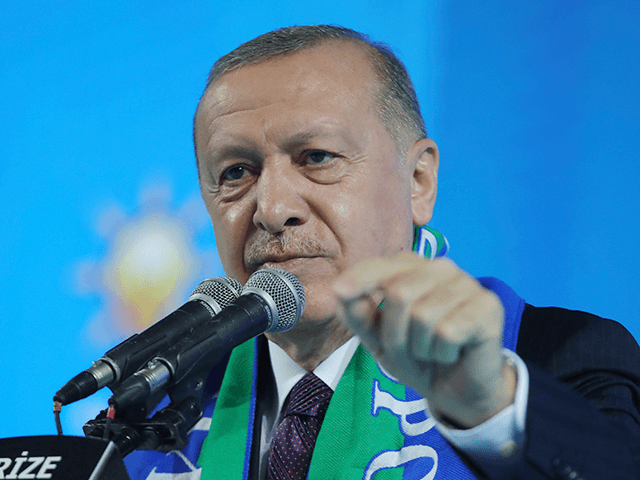Turkey summoned Iranian Ambassador Mohammed Farazmand in Ankara on Sunday to complain about Iran’s criticism of Turkish military operations in Iraq.
The complaint concerned demands by another Iranian ambassador, Iraj Masjedi in Baghdad, for Turkey to suspend operations and remove all of its forces from Iraqi territory.
Masjedi gave an interview to Kurdish news service Rudaw on Saturday in which he said Turkey should discontinue its operations against the Kurdistan Workers’ Party (PKK), a Kurdish separatist organization that operates in the Iraqi border region:
“We reject military intervention in Iraq and Turkish forces should not pose a threat or violate Iraqi soil,” Masjedi told Rudaw’s Mushtaq Ramazan on Tuesday in an exclusive interview to be aired on Saturday night. “The security of the Iraqi area should be maintained by Iraqi forces and [Kurdistan] Region forces in their area.”
Turkey has established a number of military outposts inside Iraqi territory in the Kurdistan Region since the mid-1990s to reportedly fight guerrillas of the Kurdistan Workers’ Party (PKK), increasing its cross-border footprint in recent years. Since June 2020, Turkey has launched three major air and ground operations, establishing new outposts deep inside the Kurdistan Region.
“We do not accept at all, be it Turkey or any other country to intervene in Iraq militarily or advance or have a military presence in Iraq,” Masjedi said. “Therefore we believe the Turks must return to their international position and be stationed there, and the security of Iraq be maintained by Iraqis.”
Masjedi said Turkey is planning an operation in the Sinjar region against Yazidi militants trained by the PKK. The Yazidis, a small and insular religious minority, were almost exterminated by the Islamic State. Hundreds of Yazidis volunteered for military training with Kurdish militia groups in Syria and Iraq so they would be better able to defend themselves in the future. Yazidi militias became generally known as “Sinjar Resistance Units,” named after the mountainous region where most of the Yazidi population lives.
“What has Sinjar got to do with Turkey?” Ambassador Masjedi asked. “This is an internal matter and the Iraqis themselves must resolve this issue … It has no bearing on Turkey to threaten or make a decision on this. Therefore, we reject any threat, be it from Turkey or any other side.”
Turkey regards Sinjar as a hotbed of militant activity by the PKK, an organization seen by the Turkish government as a security threat on par with the Islamic State (ISIS). Turkey accuses the PKK of forcibly recruiting Yazidis as footsoldiers, rather than helpfully teaching them to defend themselves, and has accused both the Iraqi central government and the Kurdistan Regional Government (KRG) of not doing enough to prevent the PKK from turning Sinjar into a terrorist stronghold.
Turkey is no more friendly to the People’s Protection Units (YPG/YPJ), the official Syrian Kurdish militia allied with the United States throughout the war against ISIS. The U.S. officially views the PKK as a terrorist organization but treats the YPG as a legitimate military force. Turkey insists the two Kurdish militia groups are the same entity.
Ankara’s desire to incorporate Sinjar into its security buffer region received a major boost when 13 Turks taken prisoner by the PKK were killed during a Turkish operation to rescue them in mid-February. Turkey claims the PKK executed the prisoners in cold blood, while the PKK claims they were killed inadvertently by Turkish airstrikes. Turkish President Recep Tayyip Erdogan quickly cited the deaths of the 13 hostages as a reason for Turkey to clear the PKK out of Sinjar.
“From now on, nowhere is safe for terrorists, neither Qandil nor Sinjar or Syria. You must not take the side of the terrorists. You have to be on our side,” Erodgan said at a rally on February 15, lashing out at governments who support the PKK or YPG, or would interfere with Turkey’s efforts to push them away from its border.
The European Council on Foreign Relations argued last week that Turkey should not invade Sinjar, but also conceded the Turks have a point about the PKK’s activities in Yazidi lands:
The Sinjar Agreement, which was signed by the Iraqi federal government and the KRG on 10 October 2020, sought to remove the PKK from the area and to restore the control of Iraqi federal forces, including the commission that oversees the PMUs. The agreement was a political victory for Kadhimi because it secured formal KRG consent for a reassertion of Baghdad’s authority over the area. However, Baghdad has found it difficult to implement its desired changes to the local security infrastructure. This is partly because the PKK has embedded itself within the Sinjar Resistance Units – the Yazidi security force, which has been formally linked to the PMU since 2015 and continues to operate largely beyond the control of the central government.
Iran’s ambassador to Turkey, Mohammed Farazmand, was summoned to the Turkish Foreign Ministry in Ankara on Sunday to be told Turkey does not appreciate Iranian criticism of its military operations against the PKK and expects Iran to support Turkey’s “fight against terrorism,” as Turkey’s Hurriyet Daily News put it.
According to Hurriyet’s sources, the Iranian ambassador was told Turkey and Iraq are “in agreement over securing the Iraqi territories by clearing the PKK from there,” and that Iraq’s central government should control all militia groups in order to “make the anti-terror fight in Iraq more effective.” The latter message to the Iranians was meant as a rebuke not only of the PKK, but also of Shiite militia gangs in Iraq that are loyal to Tehran.

COMMENTS
Please let us know if you're having issues with commenting.